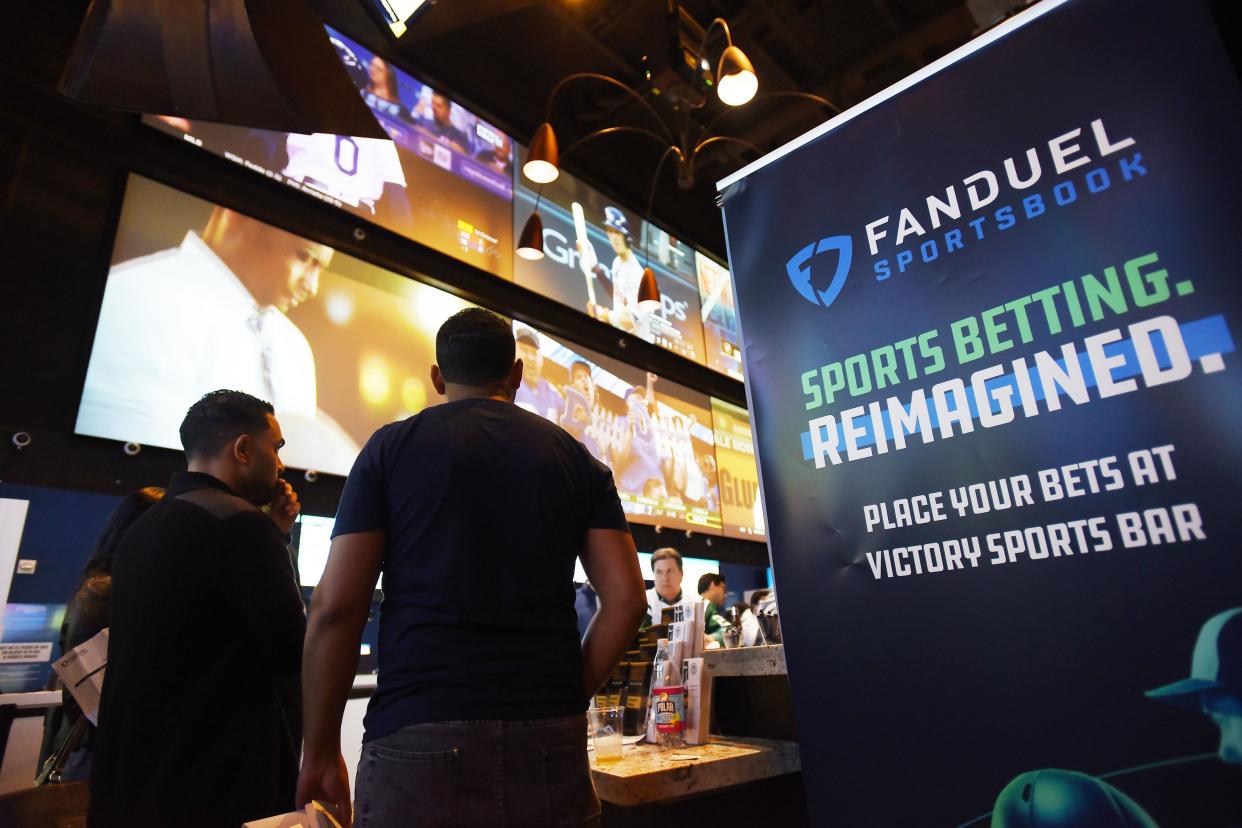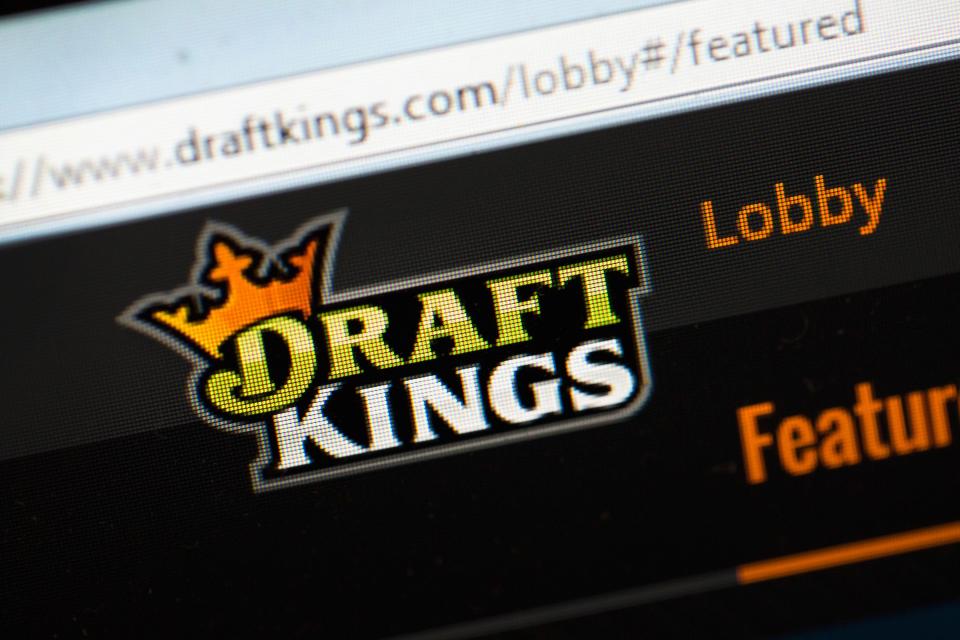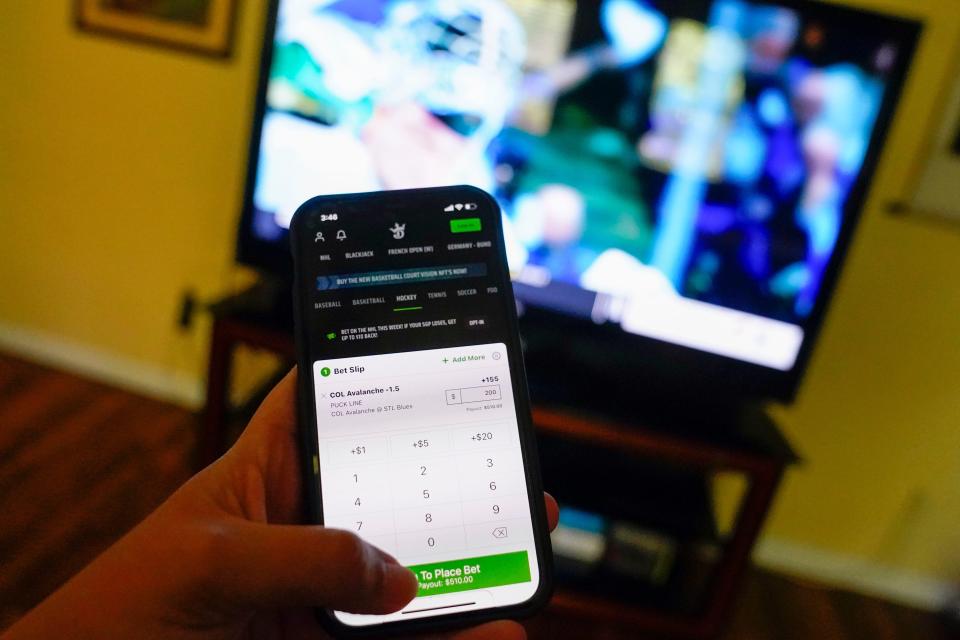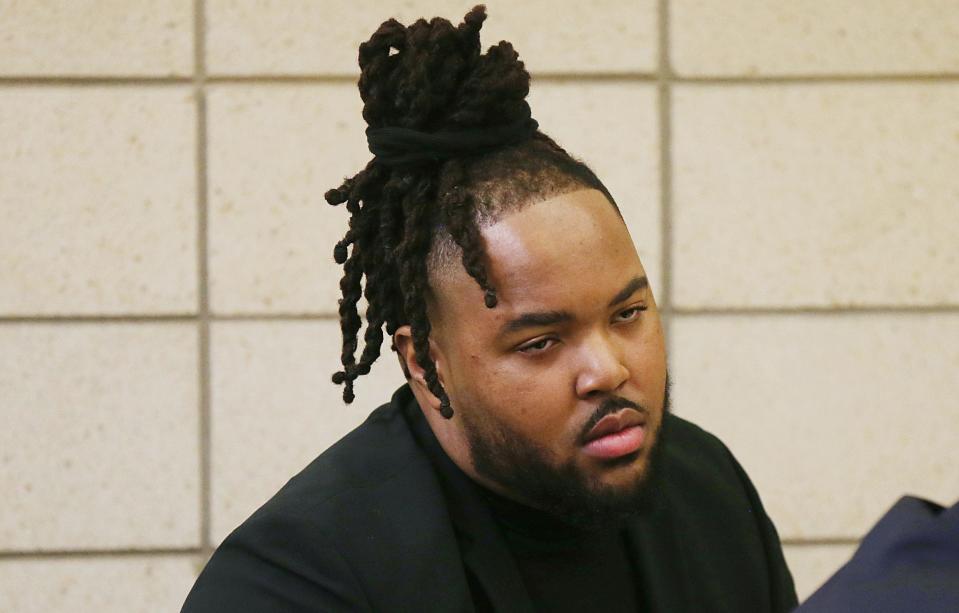Iowa lawmakers halt attempt to tighten sports betting rules after college gambling scandal

In the wake of last year's sports betting scandal at the University of Iowa and Iowa State, state regulators tried to tighten rules to prevent athletes from gambling on their own games. But those changes are now in limbo after lawmakers said part of the proposal would be too difficult for sports books to enforce.
Under the rule, which had been scheduled to take effect March 27, bettors using online sports gambling sites such as FanDuel and DraftKings would have to provide additional information to verify their identities.
The proposed change came after prosecutors charged several Iowa college athletes last year with identity theft for using their parents' and friends' accounts to bet on their team's games, or to engage in underage gambling.
But during a recorded March 11 hearing, lawmakers on the Iowa Legislature's Administrative Rules Review Committee objected to the proposal, unanimously voting to delay the rules until the end of the 2025 legislative session next spring.
They found particularly objectionable a proposed rule that would require the online sports betting companies to maintain a list of athletes, coaches and other personnel who would not be permitted to gamble on their teams' games.
More: Lawyers in sports gambling investigation accuse Iowa law enforcement of withholding evidence
A casino lobbyist said the rule would be too difficult for the companies to follow, and state Rep. Megan Jones, R-Sioux Rapids, said she was "annoyed" by the proposal.
"If you're so hell-bent on them creating an imaginary list, why don't you create it?" Jones said.
The rules came from the Iowa Racing & Gaming Commission, which oversees casinos, horse tracks, sports betting companies and daily fantasy sports providers.
While the committee voted to delay any decision on the rules until next year, Jones also sponsored House Joint Resolution 2004 to nullify parts of the proposal. The House passed Jones' bill March 6, while the Senate has not acted on it.
Asked about the next steps, gaming Commissioner Tina Eick said in an email Tuesday the proposed rule is "in the hands of the Legislature." She did not answer a question about whether passage of the bill would force the commission to start over on its rule.
In fiscal year 2023, the most recent year available, bettors in Iowa gambled about $2.25 billion on sports.
Screening all team personnel 'can't be done efficiently or effectively,' lobbyist says

During the hearing with the administrative rules committee, Eick said many of the planned changes had come from other states that allow online sports betting. They would have included requiring sports books to take extra steps to verify users' identities.
That could take the form of asking personal questions based on data drawn from a data service such as Lexis-Nexis, including confirming past addresses, or comparing a government photo ID to a self-portrait provide when registering an account.
The gaming commission also would have required gambling companies to verify an accountholder's identity with multi-factor authentication, such as sending users a push alert or texting them a code they would enter on the sports betting site.
But Eick told the rules committee that the requirement the companies maintain of a list of athletes, coaches and other team personnel was a "novel" idea.
Wes Ehrecke, CEO of the Iowa Gaming Association, which represents the state's 19 casinos, said the requirement was too vague. As it was written, he argued, companies would need to keep a list of all personnel for every pro and college team around the world, tracking thousands of names that continually change.
"It can't be done efficiently and effectively," he told the Des Moines Register.
Eick, however, said sports gambling companies could contract with other companies to get a list of athletes, coaches and personnel. She said U.S. Integrity, a California-based company that monitors gambling fraud and match fixing, is compiling such a list.
But she said the company is still negotiating with some sports leagues and conferences. She said leaders at the Big 10 Conference, in which the University of Iowa competes, still aren't comfortable providing U.S. Integrity with a list.
Spokespeople for the Big 10, U.S. Integrity and DraftKings did not respond to messages seeking comment. A FanDuel spokesperson declined to comment.
State Rep. Mike Sexton, R-Rockwell City, added during the March 11 hearing that sports betting companies would need to get lists from several providers if the rules passed. They would then have to keep in continual contact with those providers as the rules changed.
"There's going to be 100 companies out there with a couple of colleges (each), and a company that does junior colleges," he said. "The more I talk, the scarier it gets."
Gaming commission, governor's office disagree on who thought up new rule

The gaming commission's board voted to propose the rule on Aug. 24, three weeks after prosecutors in Johnson and Story counties charged 25 athletes with underage gambling and identity theft tied to the betting scandal.
The investigation began when a Division of Criminal Investigation agent used bet-tracking software to see if anyone opened apps such as FanDuel and Draft Kings' inside University of Iowa and Iowa State University athletic buildings, according to defense attorneys.
The charges were controversial, and Eick said the governor's office asked the gaming commission and the DCI whether they could write new rules to make betting under another person's name more difficult.
The state's original online gambling law, passed in 2019, required the companies to prevent athletes, coaches and other team personnel from betting on their own games. But the law does not require the companies to take specific steps to prevent such betting.
"We are going to try to see on the front end if we can keep them from getting mobile accounts to avoid some of the situations that we've seen in the headlines," Eick told the rules committee. "It's an attempt to be proactive."
Nate Ristow, the governor's administrative rules coordinator, disputed Eick's version of events during the March 11 hearing. He said then-gaming Commissioner Brian Ohorilko, who resigned to take a job at Altoona's Prairie Meadows Casino and Hotel in December, asked the governor's office whether it wanted the commission to find ways to better screen team personnel.
More: Iowa State player's father recorded calls with gaming commission leader over betting probe
"We gave him the green light to explore that," Ristow said. "It certainly wasn't an idea that we planted."
Ohorilko did not respond to a call and email seeking comment Tuesday.
Gov. Kim Reynolds' spokesperson, Kollin Crompton, said, "There has been an accelerated expansion of the regulated sports wagering market in Iowa since it became legal in 2019. With the emergence of new and dynamic technology that allows for remote betting to occur, it is important for stakeholders like IRGC and DPS to work together to ensure that rules, regulations, and enforcement mechanisms surrounding sports betting are clear and defined. The Governor wants to ensure that all those involved are communicating and working towards improving the state’s system of regulation and enforcement.”
'With all due respect to the DCI, they've clearly screwed this issue up'

Before the objections in early March, Eick said, the gaming commission worked on the proposal for months. After the commission's board approved the draft of a rule in late August, she said, the commission shared the proposal with stakeholders and held a public hearing Oct. 10.
At the gaming commission's Jan. 25 board meeting, Ehrecke objected to the rule on behalf of the casinos, which offer online sports betting through contractors like FanDuel and DraftKings.
The gaming commission board nevertheless voted to send the final proposal to the administrative rules committee for approval, in part because Ehrecke had not filed written objections by the gaming commission's deadline.
Ehrecke said Tuesday he told Ohorilko his association had problems with the bill late last year.
During the March 11 hearing, Jones said she was not comfortable with the gaming commission working with the DCI on the proposed rules.
"With all due respect to the DCI," she said, "they've clearly screwed this issue up. So I guess I'm not sure how much we can lean on those in the know with DCI."
Of the 25 athletes and student managers charged last year as a result of the DCI's probe, 19 pleaded guilty to underage gambling and paid fines of $645 apiece.
However, a Story County prosecutor dropped charges against six athletes when defense attorneys revealed the DCI had lost access to the bet-tracking software a special agent used to investigate the case.
According to defense attorneys' motions, DCI Special Agent Brian Sange launched the investigation using software from GeoComply, a company that contracts with sports books to track the physical locations where users are opening the betting websites.
Sanger testified in a deposition that he did not obtain a warrant before searching to determine whether people placed bets from inside the buildings, according to the attorneys, who have not released the transcripts of the Sanger's or other agents' depositions.
Another DCI special agent testified his boss misled him about the investigation, causing him to incorrectly assure a defendant during an interview that he was not the target of a criminal probe.
More: Iowa lawmakers fret about privacy rights after allegations against sports betting probe
In late January, GeoComply stripped the Iowa DCI of its access to the software. GeoComply has not responded to the Register's request for comment on that decision.
More: Iowa investigators in student sports betting probe defend investigation tactics
Tyler Jett is an investigative reporter for the Des Moines Register. Reach him at tjett@registermedia.com, 515-284-8215, or on Twitter at @LetsJett. He also accepts encrypted messages at tjett@proton.me.
This article originally appeared on Des Moines Register: New sports betting rules halted after Iowa college gambling scandal

